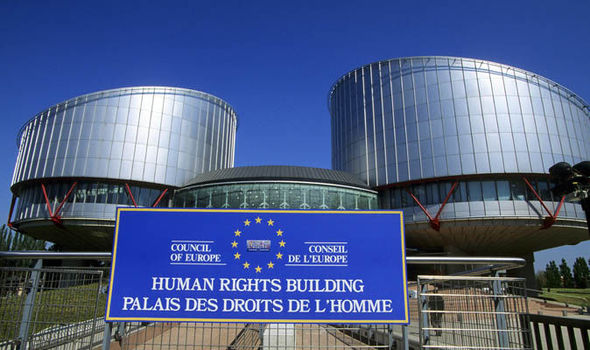The European Court of Human Rights announced on Monday, November 30, 2020 its decision to green-light a first-of-its-kind climate case against 33 countries. Its “communication” of the case to the defendant countries now requires each one of them to respond to the complaint filed by six Portuguese youth-applicants.

As most cases filed with the Strasbourg court fail to reach this stage, this decision is said to mark a major step towards a potential landmark judgment on climate change. In another significant move, the Court granted the complaint priority because of the “importance and urgency of the issues raised”.
The six young applicants from Portugal are: Cláudia Agostinho (21), Catarina Mota (20), Martim Agostinho (17), Sofia Oliveira (15), André Oliveira (12), Mariana Agostinho (8).
The four children and two young adults who are behind the case are asking the Court to hold 33 countries accountable for fuelling the climate crisis.
The countries being sued are: Austria, Belgium, Bulgaria, Cyprus, Czech Republic, Germany, Greece, Denmark, Estonia, Finland, France, Croatia, Hungary, Ireland, Italy, Lithuania, Luxembourg, Latvia, Malta, the Netherlands, Norway, Poland, Portugal, Romania, Russia, Slovak Republic, Slovenia, Spain, Sweden, Switzerland, the United Kingdom, Turkey and Ukraine.
Their complaint, which was filed with the support of the Global Legal Action Network (GLAN), centres on the rising threat which climate change poses to their lives and to their physical and mental wellbeing. If successful, the defendant countries would be legally bound, not only to ramp up emissions cuts, but also to tackle overseas contributions to climate change, including those of their multinational enterprises.
André Oliveira (12), one of the youth-applicants involved, said: “It gives me lots of hope to know that the judges in the European Court of Human Rights recognise the urgency of our case. But what I’d like the most would be for European governments to immediately do what the scientists say is necessary to protect our future. Until they do this, we will keep on fighting with more determination than ever.”
In a list of questions sent by the Court to the parties, it asked whether the youth-applicants’ right under Article 3 of the European Convention on Human Rights was being violated. Article 3 states: “No one shall be subjected to torture or to inhuman or degrading treatment or punishment.” This indicates that the Court believes the climate impacts which the Portuguese youth face are so severe that their right under this Article is arguably being violated.
According to Gerry Liston, Legal Officer with GLAN: “These brave young people have cleared a major hurdle in their pursuit of a judgment which compels European governments to accelerate their climate mitigation efforts. This comes just weeks ahead of the EU decision on its 2030 emissions target. Nothing less than a 65% reduction by 2030 will be enough for the EU Member States to comply with their obligations to the youth-applicants and indeed countless others.”
The defendant countries are now required to respond to the youth-applicants’ case by the end of February, unless a “friendly settlement” is reached. The youth-applicants, their lawyers and their experts will then have to respond to the defences of 33 countries. An international crowdfunding drive coordinated by GLAN is seeking funding to support this major effort.
The case was filed on September 3, just after Portugal recorded its hottest July in 90 years. An expert report prepared for the case by Climate Analytics describes Portugal as a climate change “hotspot” which is set to endure increasingly deadly heat extremes.
Four of the youth-applicants live in Leiria, one of the regions worst-hit by the devastating forest fires which killed over 120 people in 2017. The remaining two applicants reside in Lisbon where, during a heatwave in August 2018, a new temperature record of 44⁰C was set.
Dr Gearóid Ó Cuinn, Director said: “As only a tiny minority of cases filed with the European Court of Human Rights are fast-tracked and communicated this development is highly significant. This is an appropriate response from the Court given the scale and imminence of the threat these young people face from the climate emergency.”
